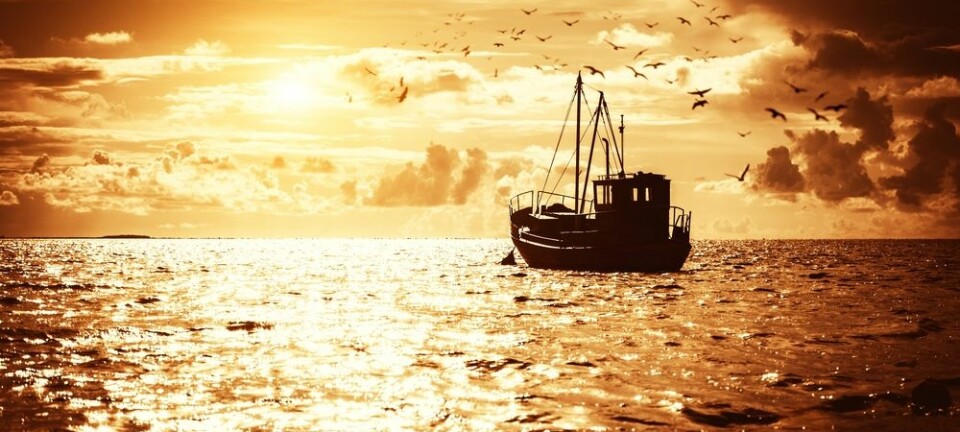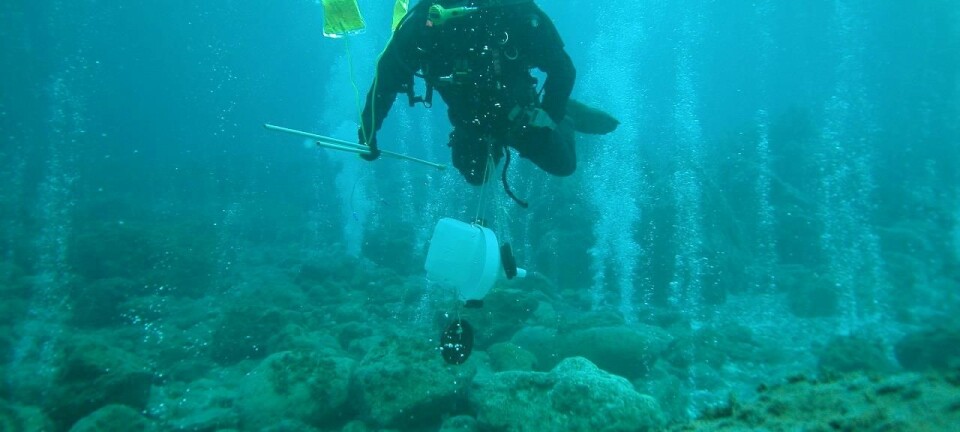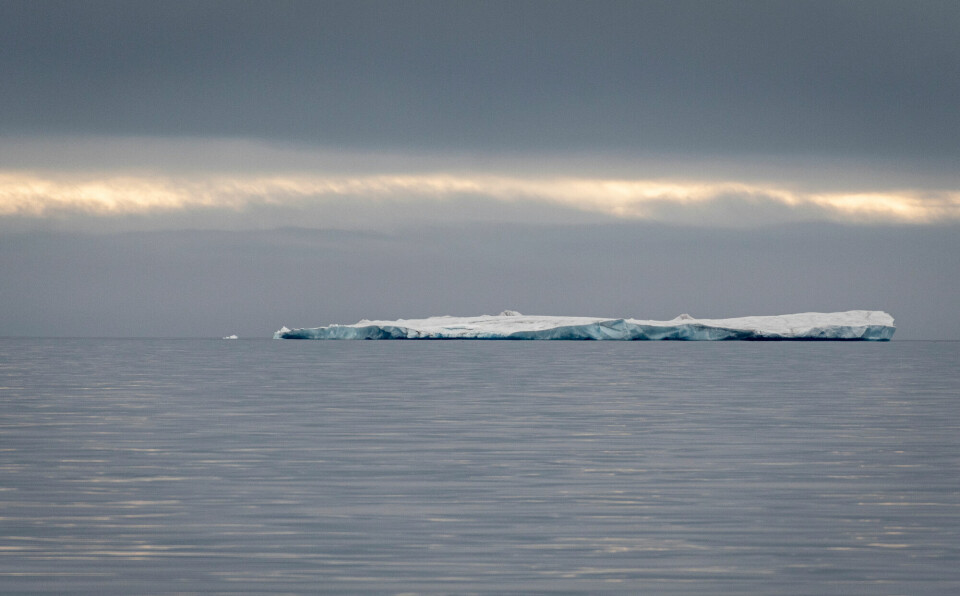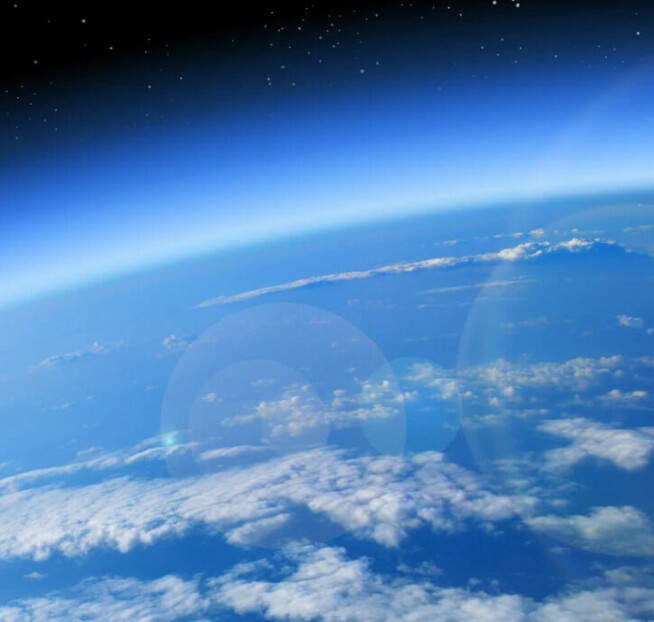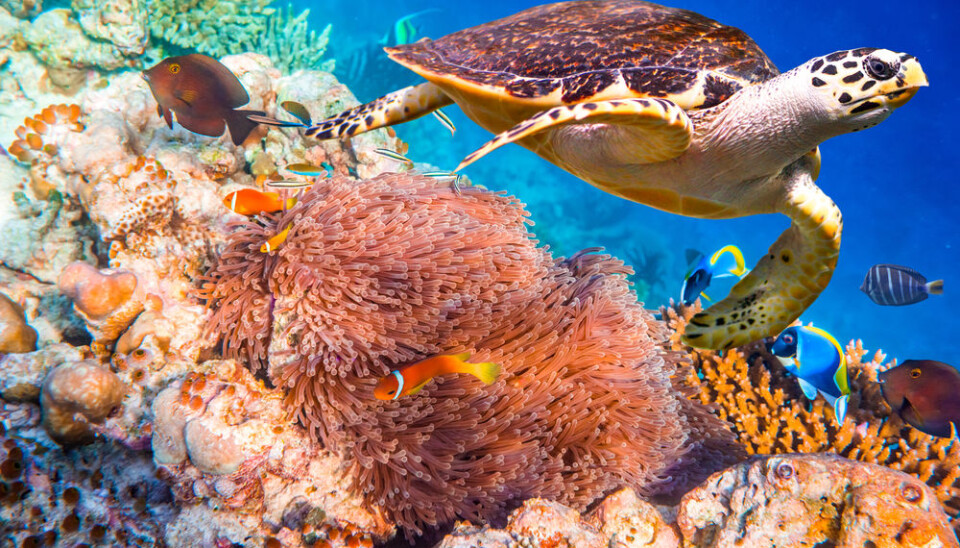
How to save the oceans and the food they provide
Seven key issues face the oceans, among them climate change and over fishing. Read the whole list here and get the scientists’ best ideas on how to save both the oceans and the food they provide.
Last week on Science Nordic, we wrote about the state of the oceans -- a report by the Nereus research program including scientists from Canada, Sweden, and the US. They proposed that aquaculture and a renewed focus on ocean governance were essential in order to secure food supplies and maintain ocean health, otherwise threatened by overfishing and climate change.
This coincided with a separate study, published this month in the journal Science by another international team of scientists, issuing a stark warning that the oceans are already paying a huge price for rising CO2 emissions. This was itself based upon an assessment of the impacts of climate change on the world’s oceans for the most recent IPCC report.
Both new studies are timed for release ahead of the upcoming UNFCCC COP21 meeting in Paris this December, intended to spur negotiations to not only reduce CO2 emissions, but to place ocean conservation and governance high on the agenda.
Here we present the seven key issues laid out by the Nereus report and supported by the Science study, and discuss their proposed solutions.
1. Ocean temperatures, acidity, and oxygen levels are changing due to rising CO2 emissions:
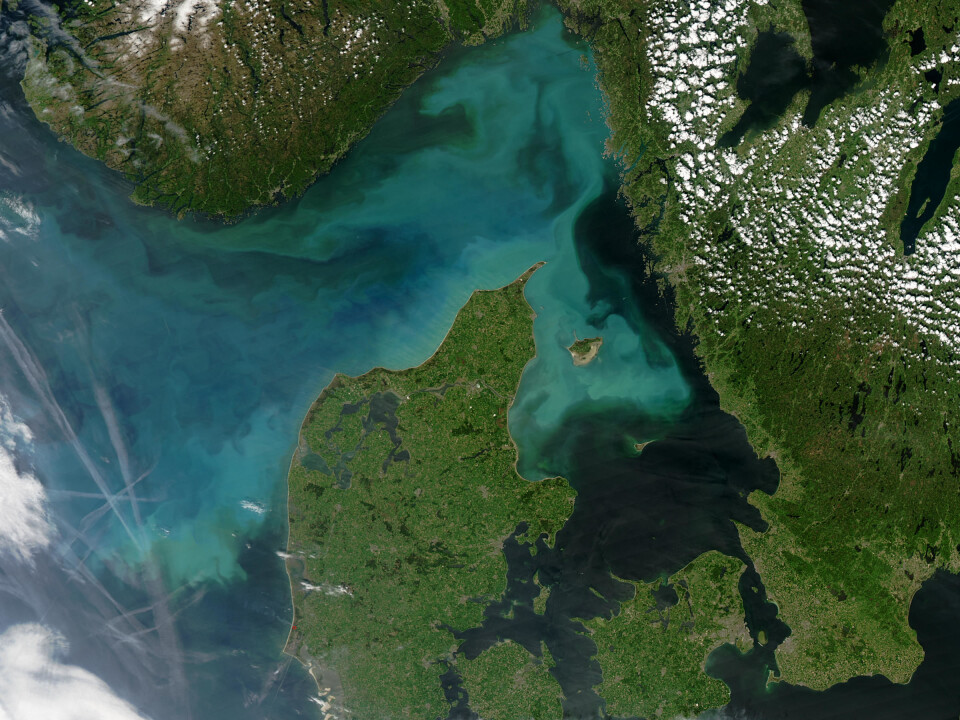
According to both studies, oceans are predicted to warm somewhere between 2.0 and 3.5 degrees centigrade by 2100 if we continue to emit CO2 under a business as usual scenario.
Not only that, but ocean chemistry is changing. As the oceans take up CO2 from the atmosphere, they in turn become more acidic, and at the same time contain less oxygen.
However not everywhere will experience changes equally -- The tropics are expected to see impacts from rising temperature and acidity relatively soon, threatening coral reefs in particular.
In both reports, the proposed solution is to cut CO2 emissions as soon as possible to avoid potentially irreversible changes in ocean ecology. Nonetheless, both studies emphasise that even if emissions were cut to zero, oceans will continue to soak up the CO2 already in the atmosphere. Temperature and basic chemistry would continue to change for some years to come, but crucially some of the most severe impacts could be avoided, and conservation plans would be more likely to succeed.
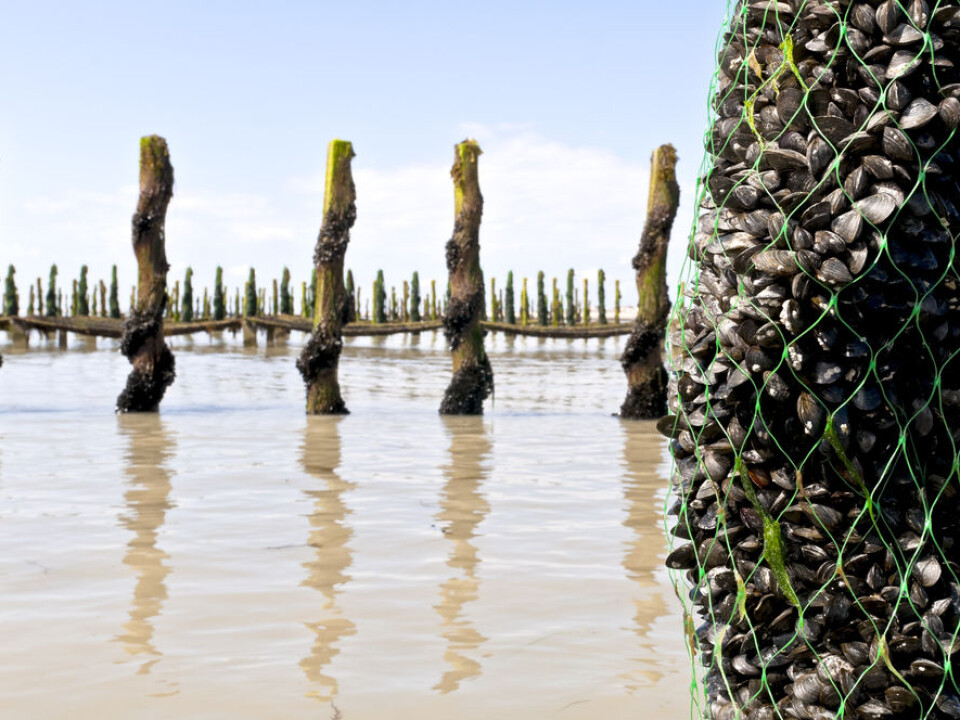
Watch the video of Henrik Österblom from the Stockholm Resilience Centre, one of the co-authors on the Nereus report, describe how the ocean responds to changing environmental conditions:
2. Climate change alters ocean food webs from the bottom up:
Species are predicted to expand their habitats to newly warmed waters, but also to suffer population losses as native species now find themselves competing with these new arrivals for food, or even becoming food themselves.
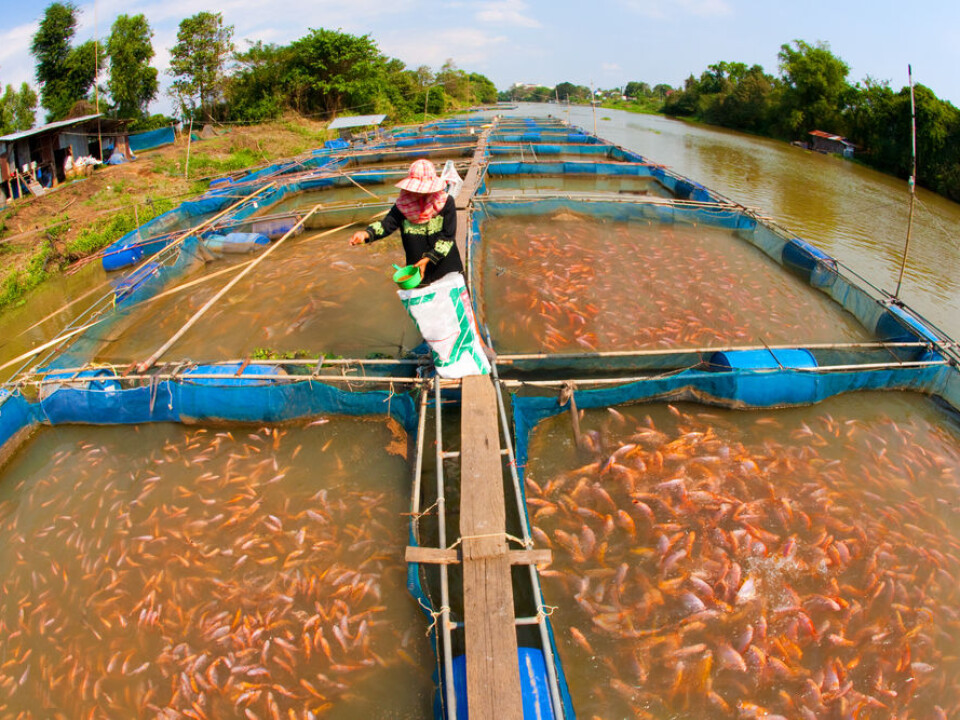
The tropics are particularly vulnerable. Here ocean temperatures and chemistry could become intolerable for some local species, which may dwindle over the next three decades. Elsewhere, distributions of fish species are predicted to change around the world, as invasive species move away from the tropics.
However, there are many unknowns. For example, the Nereus report highlights the uncertainty in estimates of primary productivity of the oceans – tiny organisms called phytoplankton -- the base of the marine food chain and a vital source of food for many other small or large fish.
The report emphasises that on-going satellite monitoring should be able to improve their ability to detect trends in phytoplankton through time, to get a better understanding of how the base of the marine food web may be changing in response to rising ocean temperatures.
3. Changes are already underway; resulting in smaller catches for fisheries:
Global fish stocks have been declining since the 1970s, and fish are becoming smaller in response to changing levels of oxygen and ocean temperatures –- By 2050 some fish are predicted to have shrunk by as much as 24 per cent, according to the Nereus report.
This, has direct impacts on the amount and quality of fish available for fisheries, and once again, the Tropics are predicted to be affected the most.
However, in some regions catches may increase in the short term, such as the Arctic where melting sea-ice and warmer waters are opening up new areas to fishing.
Proposed solutions include mitigating climate change by reducing CO2 to a low emission scenario, accompanied by changes to fisheries management, that takes predicted changes to ecosystems into account.
Conservation measures to preserve the biodiversity of oceans and coastal environments are also suggested to be of vital importance.
4. Over fishing exerts pressure on marine ecosystems:
Changes to biodiversity are a key concern. The Nereus report states that many of the biodiversity-related conservation and sustainable development goals developed in 2010 under the framework of the Convention on Biological Diversity, are unlikely to be met by the 2020 deadline.
But according to their ecological models large predators have fallen in numbers over the last 100 years, with half of this decline occurring in the last 40 years. However, this is not universal, as some regions have seen increasing numbers of predatory species within this same time.
Locally and globally managed conservation measures are suggested to be essential to maintain biodiversity, and fisheries should be aware of these issues as they plan their future activities, according to the Nereus report.
Maintaining biodiversity helps the ecosystem as a whole to adapt to environmental changes -- Whilst a change in environment may be detrimental to one species, a diverse ecosystem will likely have many other species that can survive or even expand their populations.
Watch the video of Laurens Geffert, a PhD student with Cambridge University and a member of the Nereus Program, talk about biodiversity:
Laurens Geffert - Biodiversity from The Nereus Program on Vimeo.
5. Over fishing, habitat loss, and climate change should be considered together:
Global fish stocks continue to fall due to overfishing and habitat loss from coastal development, and as ocean conditions change. Predicting future fish stocks will need to consider all of these factors together.
Providing incentives for fisheries to manage themselves in a sustainable way and to be able to adapt to changing distributions of fish species and populations in the future is crucial, according to the Nereus report, and should be approached at both regional and global levels.
6. Aquaculture has an important role but environmental impacts are not yet known:
Whilst aquaculture currently supplies 50 per cent of all fish and shellfish, directly consumed by us humans, it is not immune to issues of food security in the future. In many cases, the industry relies on wild fish to replenish stocks, as well as food crops from land to feed the fish, making the industry vulnerable to changing climate on land and in the sea.
In the Science study, the impact to open or semi-open marine aquaculture is predicted to be severe by the end of this century under a business as usual CO2 emissions scenario, as global fish stocks decline. However, such aquaculture fisheries are likely to be virtually unaffected in the future, if CO2 emissions are severely reduced.
They suggest that economic losses in the mollusc aquaculture industry alone due to ocean acidification could be as high as $100 billion by the year 2100.
The Nereus report suggests that aquaculture still requires development of management plans and sustainability assessments, with increasing coordination between existing global and regional regulatory frameworks. This includes coordination between international fisheries regulation and regulation of other marine activities, such as shipping or coastal developments.
They also emphasise that global fish stocks may need to be shared around the world to help regions predicted to be disproportionately affected, like the Tropics.
7. Tighter international law and ocean governance are needed to secure the future of fisheries:
As marine resources are put under strain, potential conflicts may occur between various industries including fisheries and shipping, community groups, scientists, local inhabitants of coastal areas, and conservationists -– all of whom have different demands of the ocean and coastal regions.
The Nereus authors recommend that conservation measures need to be implemented by all marine users, and that the cost of doing so must also be shared equally to avoid potential conflicts.
They recommend tighter laws to govern international fisheries, and ocean governance reform so that regulatory authorities for both fisheries and all other marine users can consult together in the future.
---------------
Read last week's related article,‘The oceans are changing and so should we’.
“Predicting future oceans: climate change, oceans & fisheries” report was funded by the Nippon Foundation, and is available online at the Nereus Program website -- the research consortium behind the research lead by the University of British Columbia, Canada and in partnership with Stockholm University, Sweden, and institutions throughout the USA and Europe.
The study ‘Contrasting futures for ocean and society from different anthropogenic CO2 emissions scenarios’ was published this month in the journal Science.
Scientific links
- 'Predicting future oceans: climate change, oceans & fisheries'
- ‘Contrasting futures for ocean and society from different anthropogenic CO2 emissions scenarios’
